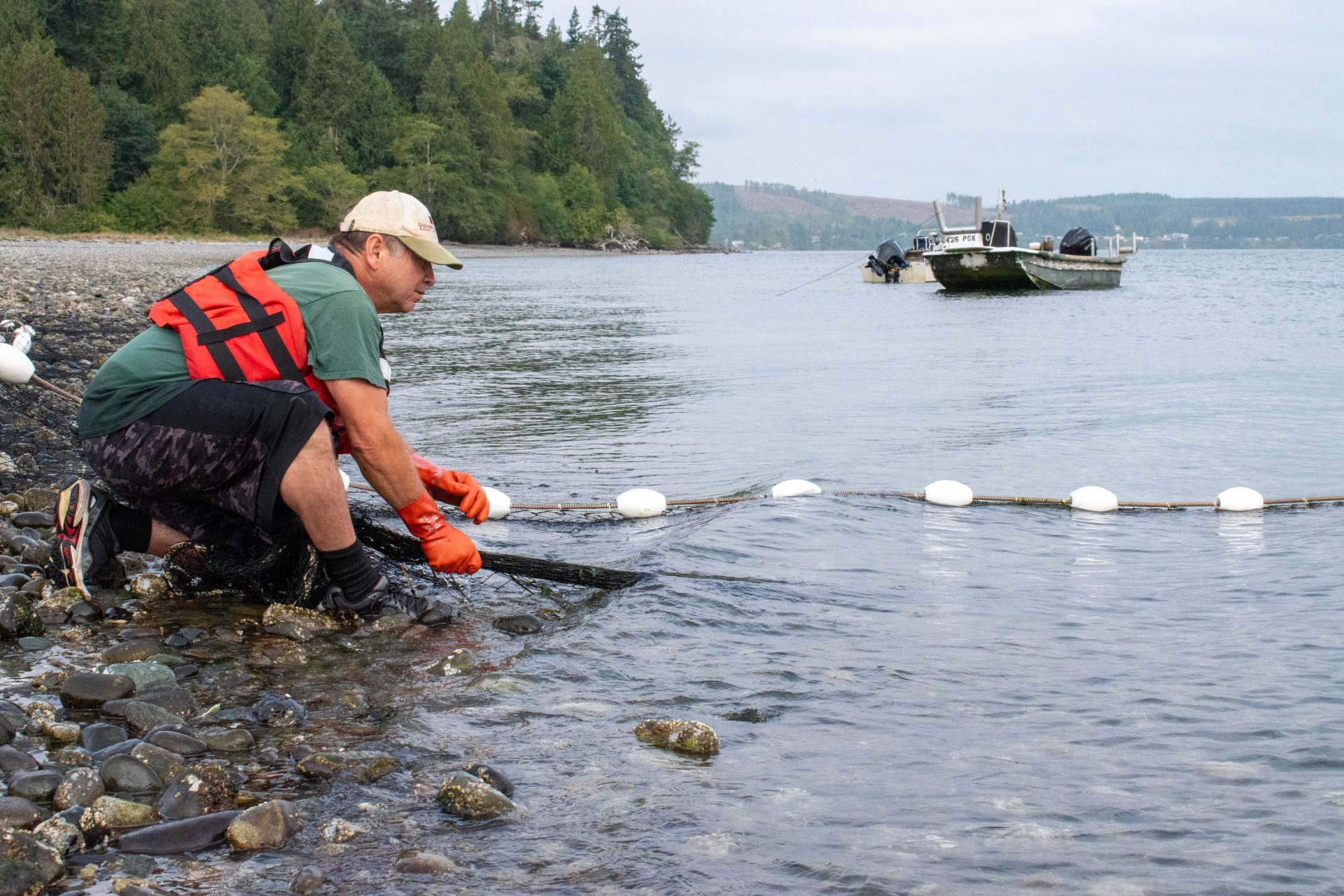WASHINGTON, D.C. (Oct. 21, 2005) — The U.S House of Representatives Resources Committee passed a resolution this week declaring that the Makah Tribe should not be required to obtain a waiver and a permit under the Marine Mammal Protection Act (MMPA) in order to exercise their treaty-reserved right to harvest gray whales.
The non-binding resolution, which passed by a bipartisan vote of 21 to 6, states: “The Congress disapproves of requiring the Makah Tribe to obtain a waiver and a permit under the Marine Mammal Protection Act of 1972 before taking gray whales, and expresses its intent that the government of the United States should uphold the treaty rights of the Makah Tribe.”
“It was a positive affirmation for the long-held views of tribal leaders working for the integrity of Indian treaties,” said Micah McCarty, a Makah tribal councilman who observed the vote in Washington, D.C. “It’s very helpful that the resolution acknowledges that the process of filing for the MMPA waiver is burdensome, costly, and contrary to the letter and spirit of the tribe’s treaty rights.”
“This is a frustrating process for our people and we are truly appreciative of the efforts of Rep. Norm Dicks (D-Washington), the chairman and the members of the Resources Committee and their staff,” said Ben Johnson, Jr., Makah tribal chairman. “We hope that this action by Congress will help us resume our traditional whaling in the very near future and help other Indian tribes around the country.”
The Makah Tribe’s request for a waiver under the MMPA to resume their treaty-reserved right to whale was the subject of four public scoping sessions held in Washington state and Washington D.C in October.
Last year, a federal appeals court acknowledged the tribe’s treaty right to whale. However, the court ruled that the tribe must comply with the Marine Mammal Protection Act (MMPA) and obtain a waiver from NOAA Fisheries before it can proceed with a hunt. The ruling comes despite explicit language in MMPA that says the law isn’t intended to abrogate any Indian treaty.
The process will lead to publication by NOAA Fisheries of an environmental impact statement (EIS) on the Makah Tribe’s proposed harvest.
The Makah propose to hunt up to 20 gray whales during a five-year period, with a maximum of five whales landed in any one year and subject to any quotas from the International Whaling Commission.
(END)
For more information, contact: David Sones, Makah vice-chairman. John Arum, attorney for the Makah Tribe, (206) 448-1230; Tony Meyer, Northwest Indian Fisheries Commission, (360) 438-1181, ext 325 or Debbie Preston, (360) 374-5501




